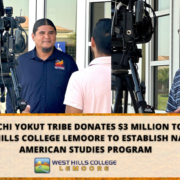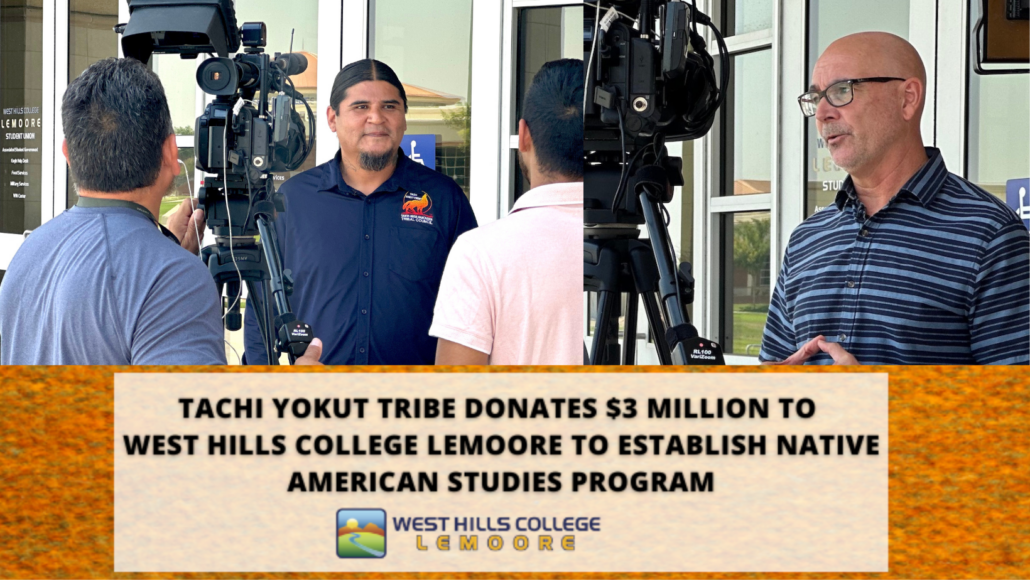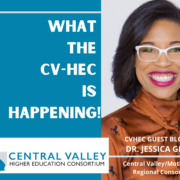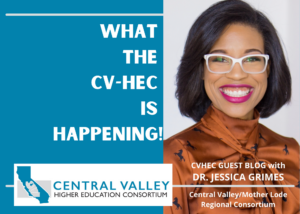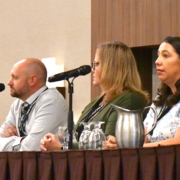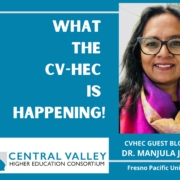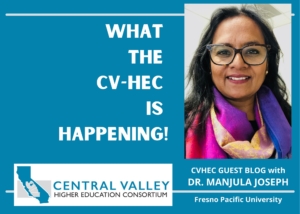Open Educational Resources movement launched with $580,180 K-16 grant to CVHEC members
Open Educational Resources has the potential to save students millions of dollars in textbook and material costs that helps minimize financial barriers impeding access to quality education, said Dr. Kristin Clark (left), WHCCD chancellor, with West Hills College-Coalinga President Carla Tweed and West Hills College-Lemoore President James Preston.
OER Task Force and convening
planned for this fall
The pioneering Open Educational Resources Improvement Project – a collaboration of Central Valley Higher Education Consortium members and partners –kicks off with a $580,180.00 state grant as well as a new OER Task Force and convening planned for later this fall.
CVHEC-member West Hills Community College District recently announced the Fresno-Madera K-16 Collaborative Mini-Grant Award for the groundbreaking initiative that is poised to usher in a new era of educational opportunities by revolutionizing learning, teaching and research materials across the Central Valley.
The project is in collaboration with the State Center Community College District and its campuses — Fresno City College, Madera Community College and Reedley College (all consortium members) — and CVHEC.
Open Educational Resources has the potential to save students millions of dollars in textbook and material costs, said Dr. Kristin Clark, WHCCD chancellor, in the Aug. 22 award announcement. This helps minimize financial barriers that impede access to quality education.
“OER is pivotal in alleviating financial burdens on our students with the transformative power to enrich education, making it more affordable and accessible,” Chancellor Clark said.
The free exchange of knowledge
The initiative promotes accessibility, reusability, adaptation and redistribution said the chancellor who also serves as chair of the CVHEC Board of Directors made up of the chancellors, presidents and campus directors of 28 Central Valley institutions of higher education in the nine-county region from San Joaquin to Kern counties.
OER encompasses a diverse range of materials, such as textbooks, curricula and multimedia resources made available under open licenses that encourage the free exchange of knowledge.
Since 2016, West Hills College Lemoore has been at the forefront of OER development, showcasing WHCCD’s dedication to providing an inclusive and equitable learning environment that serves as a testament to the district’s commitment to academic excellence.
Chancellor Clark said the Fresno-Madera K-16 Collaborative Mini-Grant Award “will empower us to advance education in the Central Valley by leveraging the potential of Open Educational Resources underscoring our unwavering commitment to fostering innovation and student success.”
She called the grant “a testament to the collaborative spirit of the Central Valley’s educational community and the strides we can achieve together. We are incredibly excited to embark on this significant endeavor alongside our esteemed partners.”
Statewide leadership to a ZTC degree pathway
Dr. Benjamín Durán, CVHEC executive director, said this visionary partnership of consortium members will expand on WHC-Lemoore’s pioneer work with faculty and instructional administrators developing Open Educational Resources /Zero Textbook Cost textbooks, courses and pathways that serve area institutions and their feeder high schools.
“This Central Valley OER movement provides statewide leadership leading to a full ZTC degree pathway in Elementary Education for our students that immediately serves the Fresno and Madera County areas,” Duran said.
“We commend our community college members for uniting under CHVEC for this grant, enabling them to create a wealth of high-quality educational resources for the benefit of students and educators throughout the Central Valley and beyond.”
An evolution of teaching and learning
West Hills College-Lemoore President James Preston, who serves on the statewide California Community Colleges ZTC Task Force, said in a CVHEC “What Is Happening Blog” a year ago that his campus jumped into the “OERevolution” as a way to eliminate textbook cost barriers for students.
“However, what started as a revolution against textbook publishers and outrageous prices quickly turned into an evolution of teaching and learning as faculty utilized OER materials in creative and powerful ways,” wrote President Preston.
“Thousands of hours of teamwork, a few additional grants and six years later West Hills College Lemoore has saved students over $8 million dollars, revolutionized teaching and learning and currently offers 62 percent of our courses in the ZTC format with a dozen degrees and certificates that students can complete without any textbook costs.”
In a presentation to fellow CVHEC board members at their quarterly meeting in May, President Preston said the use of ZTC is “a huge win for diversity and equity” that “allows for culturally responsive relevant materials.”
OER/ZTC Task Force
Dr. Duran said the next step for CVHEC is to finalize formation this fall of the OER/ZTC Task Force consisting of representatives from the consortium’s 28-member institutions.
“This new task force will support our members as they assist students attain basic needs that help navigate their way towards the completion of their educational goals. “
He said the first OER/ZTC Task Force Convening will be set for later this fall when task force members and other individuals and campuses can further explore strategies for addressing those basic needs.
For more information: centralvalleyhec@gmail.com.
For media inquiries:
WHCCD – Amber Myrick (559.934.2132) ambermyrick@whccd.edu
CVHEC – Tom Uribes (559.348.3278) cvheccommunications@mail.fresnostate.edu
SCCCD – Jill Wagner jill.wagner@scccd.edu
Also see:
- WHCCD full press release (link to come)
- CVHEC Board to appoint ZTC/OER Task Force (CVHEC e-Newsletter – May 2023).
- Zero-Textbook-Cost/OER Movement picks up steam with $115m state grant (CVHEC e-Newsletter – September 2022).
- What the CV-HEC is Happening Blog by WHC-L President James Preston(CVHEC e-Newsletter – September 2022).
- WHC-Lemoore OER– (https://www.westhillscollege.com/lemoore/oer/)
- OER video– (https://youtu.be/qop5VhYv2nw)
- California community colleges implement zero-textbook-cost(Inside Higher Ed – Sept. 19, 2019)

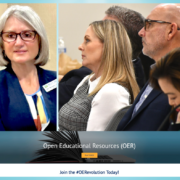
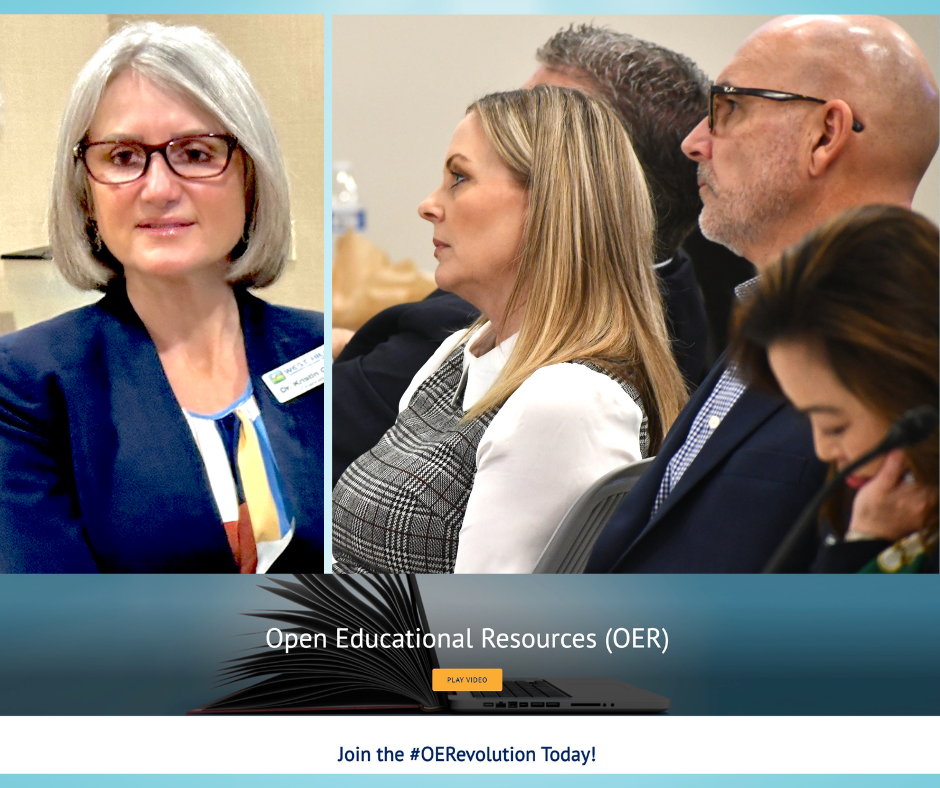
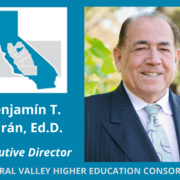
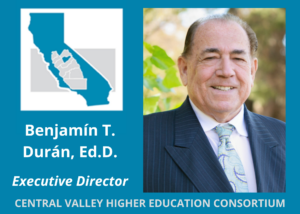 This funding will expand on
This funding will expand on 